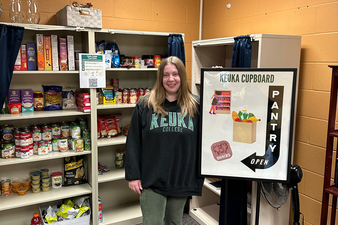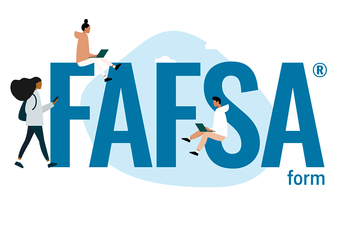If you work in nursing, social work, psychology, occupational therapy, or any health and human services field, you already know the truth: empathy takes energy.
At Keuka College, we approach self-care the same way we approach professional practice – clear, research-guided, and doable on a busy schedule. One helpful framework comes from Dr. Peggy Swarbrick’s Eight Dimensions of Wellness (physical, emotional, social, intellectual, occupational, spiritual, environmental, and financial). Think of them as a whole-person checklist you can actually use.

“Healthy boundaries are care – for clients and for yourself. In empathy-driven work, small habits like taking real breaks, naming your workload and availability, and saying no to extras protect your energy and prevent compassion fatigue.”
1) Protect Your Physical Capacity
Steady sleep, movement, and nourishment fuel resilience so you can bring your best to patients. Long shifts and irregular mealtimes can make even the basics tough.
Try this: Choose three weeknights for a firm sleep window (e.g., 10:30–6:30). Add a 30-minute wind-down – no charting, no scrolling – to start paying down sleep debt.
2) Steady Your Emotional Core
Naming and regulating feelings keeps judgment clear and boundaries firm. Constant exposure to others’ pain can drown out your own signals.
Try this: Silently label what you feel (“irritated,” “sad,” “amped”), then complete three rounds of box breathing (inhale-4, hold-4, exhale-4, hold-4) before the next task.
3) Strengthen Your Social Network
Reliable connections buffer stress and sharpen decision-making when the day gets messy. Giving nonstop to clients can leave personal relationships sapped of energy.
Try this: Each week, send two 60-second check-ins, schedule two 10-minute walk-and-talks, and line up one face-to-face coffee within the next two weeks.
4) Feed Your Intellectual Curiosity
Fresh input and deliberate practice keep you adaptable and motivated – not just reactive. When cognitive energy goes to charts and crises, growth that isn’t urgent slips.
Try this: Once a week, teach a teammate a new concept in three minutes using plain language. Notice any gaps, then spend five minutes closing one of those gaps.
5) Calibrate Your Occupational Fit
Small adjustments to duties and boundaries prevent big burnout and keep work aligned with your values.
Try this: List top duties and tag each as Energizing/Neutral/Draining. Change one “drainer” this week by adjusting a lever – time (shorten by 15 minutes), tool (template or checklist), or teammate (pair or handoff) – and schedule one energizer early.
6) Nourish Your Spiritual Anchors
Purpose and values steady you in hard seasons and make compassion sustainable. Urgency can crowd out reflection until meaning feels far away.
Try this: On your commute or lunch, spend three minutes noticing a single detail – light on a wall, tree patterns, city noise as rhythm – and name it silently as your breathing slows.
7) Tune Into Your Environmental Surroundings
Better air, light, noise, and flow reduce micro-friction and preserve attention – even in shared or crowded spaces.
Try this: Create a simple arrival ritual: a hook for badge and keys, a bin for shoes and scrubs, hand soap you like, and a three-minute stretch card. Turn walking in the door into a reset.
8) Stabilize Your Financial Foundations
Healthy finances reduce stress and expand choices when life gets loud. Variable shifts and student loans can make money feel like constant triage.
Try this: By your next pay cycle, set retirement contributions to at least the employer match (e.g., 3–5%). No match? Auto-transfer 3% of each paycheck to a high-yield savings account.

“Know your dashboard – burnout looks different for everyone. For some, it’s irritability or detachment. For others, deep fatigue or headaches. Spot your early signals and respond quickly by prioritizing self-care.”
Put It into Practice
Grow your impact without running on fumes. Keuka College offers flexible, experiential programs in nursing, social work, psychology, occupational therapy, and other health sciences – for first-time students and busy working adults. You’ll build whole-person resilience while advancing your credentials – so you can keep making the difference that matters.












